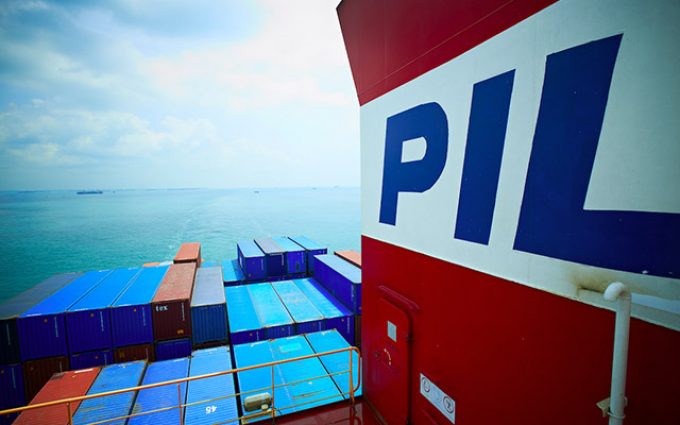'Flexible' new mid-size containerships see carriers better prepared for crashing demand
Emergent trends in shipbuilding demonstrate how carriers are building capacity management into their fleets at ...

After its shock withdrawal from the transpacific this month, troubled Singapore-based carrier Pacific International Lines (PIL) is selling ships to raise cash to support its remaining operations.
It has prompted renewed industry speculation that PIL may soon pull out entirely from liner services, against a backdrop of stunted global growth and sub-economic freight rates on many trades.
According to Alphaliner, Taiwanese carrier Wan Hai has purchased 11,923 teu sister ships Kota Panjang and Kota Perwira from PIL for $93.4m each.
The two high-spec ...
Maersk Air Cargo sees volumes fall as it aims for 'margin in favour of revenue'
Keep our news independent, by supporting The Loadstar
Container spot rates diverge: to Europe still falling, but firmer to the US
Hapag-Lloyd won't take bookings if port congestion leaves cargo stranded
Ecommerce likely the front-runner in resurge of transpacific trade after deal
Airfreight players eye new routes as demand on the transpacific nosedives
China-US trade tariff pause could drive a rebound for transpacific rates
Service chaos from trade ban with India a problem for Pakistan shippers
Volume surge and an early peak season? 'Don't celebrate too soon,' warning
Airfreight rates ex-China 'loss-making', but hopes of a trade deal stay high
Indian coastal freight attracts major carriers, but regional tension disrupts
Serious threat to jobs in US logistics as tariffs cause economic 'stagflation'
APMM floats along on 'solid' Q1 profitability in Ocean, well prepared for choppy water
White House u-turns see freighters flying but keep logistics players on their toes
Carriers impose 'emergency operation' surcharges on Pakistan cargo
MSC in terminal switch as Nhava Sheva gets strong start to new fiscal year


Comment on this article